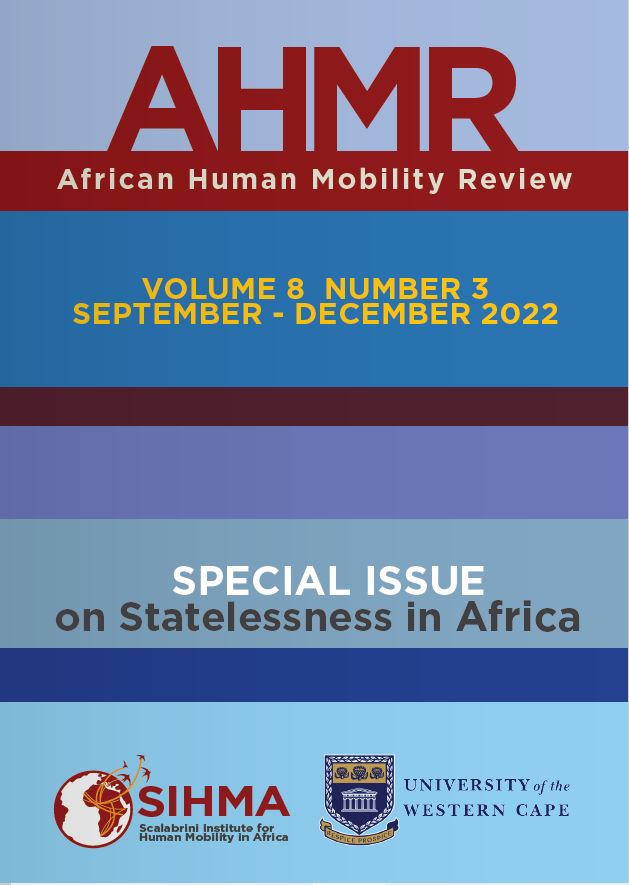Main Article Content
The Impact of Climate Change on Statelessness in the Southern African Region
Abstract
There are three ways by which nationality can be acquired: by descent, birth on the territory, or naturalisation. However, the determination of nationality remains ambiguous, and statelessness is becoming a major concern in the Southern African region. Statelessness often occurs due to the lacunae found in the laws, policies, and practices of states that deny individuals their right to nationality, at birth or later in life. Stateless persons become unfairly marginalised and denied their basic human rights and access to services, legal protection, and recognition. Statelessness is not only harmful to stateless persons themselves but can destabilise the society in which such persons live. Cross-border and permanent displacement due to the impacts of climate change is among the factors that can cause statelessness. Persons who are unable to prove their nationality often can be regarded as stateless. This article investigates how statelessness can be associated with cross-border and permanent displacement due to the impacts of climate change. It uses case studies of South Africa, Mozambique, and Tanzania. It evaluates the likelihood that such circumstances may lead to uncertain rights and legal statuses of stateless persons, issues that have the potential to be passed on to subsequent generations. The article concludes that climate change has farreaching stateless implications. It recommends the law and policy review as among the possible solutions for effectively preventing statelessness and protecting and promoting stateless persons' rights in the Southern African region.





